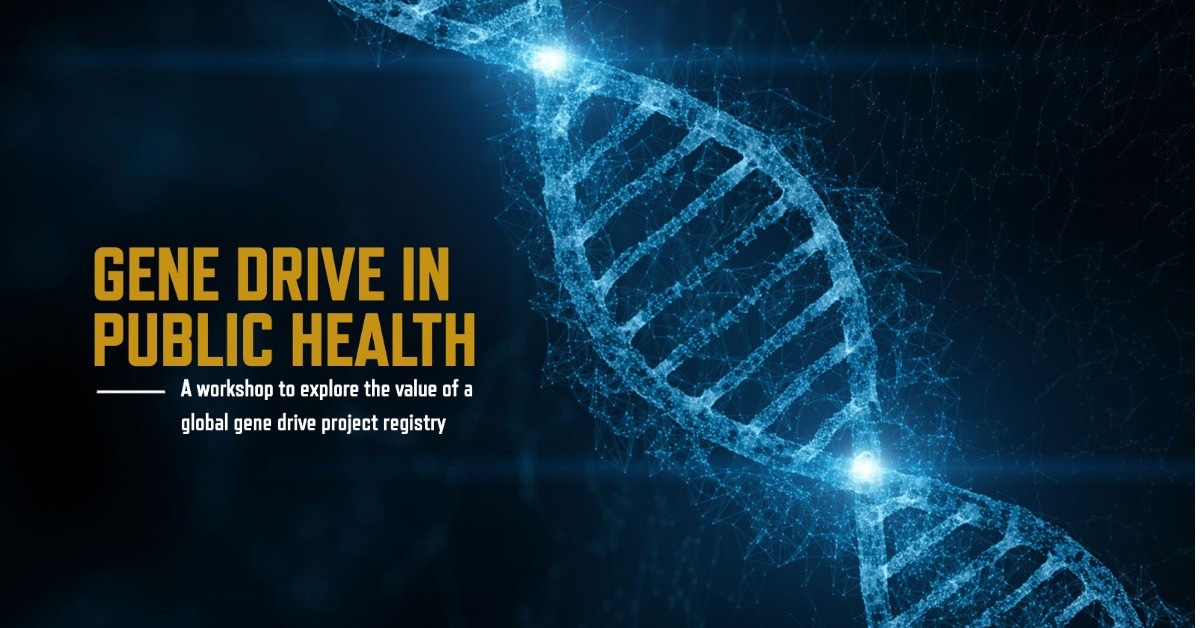With the help of genetically modifying organisms in a lab, new strategies for managing pests, combating vector-borne diseases, and conserving the environment are being developed. Questions about the safety and ethical implications of these developments, including gene drives intended to spread particular genes, are raised.
 Herbert Wertheim School of Public Health and Human Longevity Science at UC San Diego led 70 participants from 14 nations in a two-day workshop to discuss the ways in which a gene drive project registry could both contribute to and detract from the fair development, testing and use of gene-drive modified organisms. Image Credit: robsonphoto—stock.adobe.com
Herbert Wertheim School of Public Health and Human Longevity Science at UC San Diego led 70 participants from 14 nations in a two-day workshop to discuss the ways in which a gene drive project registry could both contribute to and detract from the fair development, testing and use of gene-drive modified organisms. Image Credit: robsonphoto—stock.adobe.com
Recent calls to establish a global project registry before releasing any gene-drive modified organisms into the environment have suggested a registry could be valuable to coordinate research, collect data to monitor and evaluate potential ecological impacts, and facilitate transparent communication with community stakeholders and the public.”
Cinnamon Bloss, PhD, Study Senior Author and Professor, Herbert Wertheim School of Public Health and Human Longevity Science, University of California San Diego
Bloss organized a two-day workshop in December 2020 with 70 participants from 14 different countries to discuss how a gene drive project registry could both advance and hinder the ethical creation, testing, and application of gene-drive modified organisms.
A total number of 47 experts from organizations including national and local governmental agencies, international and nonprofit organizations, universities, and regional district vector control offices reported in the online edition of Nature Biotechnology on December 15th, 2022, advancing the notion that a registry could be an important organizing tool for multidisciplinary and multisector work activities in the area of gene drive.
Science is a complex field, and experts from a variety of fields, industries, and geographical areas contribute the knowledge required to create products that could one day be applied to public health initiatives.
Bloss added, “Historically, registries have been seen as improving transparency by making information about experimental biotechnologies or medical treatments publicly accessible. Although a project registry could similarly facilitate transparency in gene drive research, one of our main conclusions was that such an effort would first require careful and inclusive deliberation with potential end-users, such as scientists, government stakeholders or local communities.”
Riley Taitingfong, PhD, who was a postdoctoral fellow at the Herbert Wertheim School of Public Health and the study co-first author, stated, “We discussed communities’ rights to inform decisions about whether a gene drive organism is released in their environment, and many of us advocated for a registry that includes detailed information for use by local decision-makers living in areas where a gene drive organism is being considered for release.”
Another co-first author, Cynthia Triplett, M.P.H, who is a staff researcher at Herbert Wertheim School of Public Health, added, “A registry could also help government regulators promote surveillance and monitoring of potential ecological and health risks.”
Using a gene drive technique, organisms are genetically modified so that a specific set of genes is passed down to succeeding generations. For instance, Omar Akbari, PhD, a co-author, and colleagues at the UC San Diego School of Biological Sciences are engineering mosquitoes with confineable gene drives.
They are also creating safer non-drive technologies, such as the CRISPR technique used to eradicate the invasive fruit fly Drosophila suzukii, which causes millions of dollars’ worth of crop damage.
A registry, according to the two-day workshop’s participants, could: enhance scientific learning and collaboration; assist in foreseeing potential interactions between gene-drive modified organisms released into the environment; encourage surveillance and monitoring; and assist local decision-making and authorization by impacted communities.
The authors suggest that a formal needs analysis be carried out as the next step with a more varied group of stakeholders to further identify the importance and value of a global gene-drive project registry.
Source:
Journal reference:
Taitingfong, R. I., et al. (2022). Exploring the value of a global gene drive project registry. Nature Biotechnology. doi.org/10.1038/s41587-022-01591-w